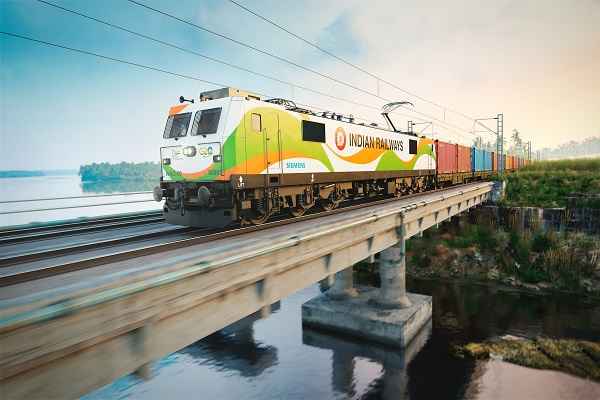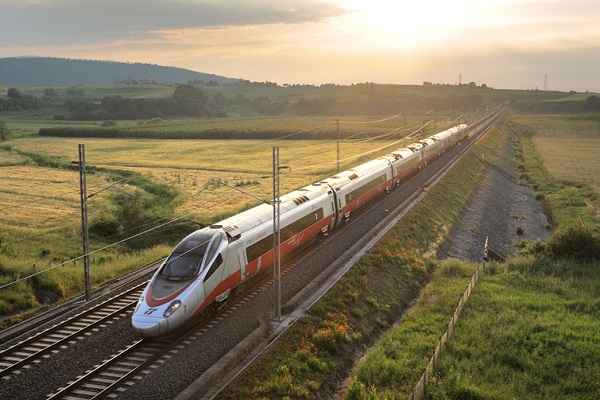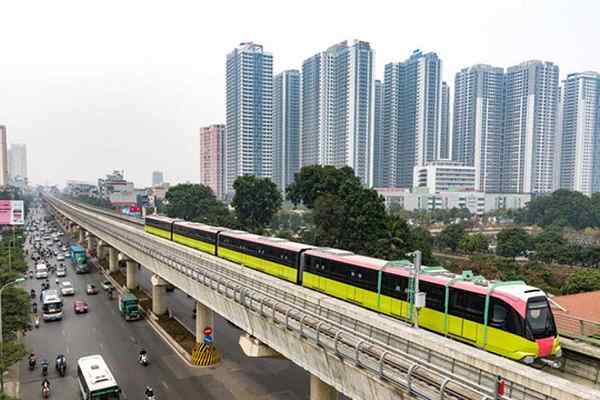 Nafisah Aslam-Zainudeen: Inspiring the Next Generation of Female Engineers
Nafisah Aslam-Zainudeen: Inspiring the Next Generation of Female Engineers DRA-DMRC JV awarded major contract for redevelopment of Ahmedabad Railway Station
DRA-DMRC JV awarded major contract for redevelopment of Ahmedabad Railway Station Revolutionizing Transportation: Hyperloop Technology in Saudi Arabia
Revolutionizing Transportation: Hyperloop Technology in Saudi Arabia India is not just a market, it is becoming a beacon of hope for the future: Siemens AG
India is not just a market, it is becoming a beacon of hope for the future: Siemens AGSATEBA acquires Rail Business of De Bonte Group in Belgium
 Regent to launch High-Speed Seagliders to transform coastal transportation in UAE
Regent to launch High-Speed Seagliders to transform coastal transportation in UAE California commences construction on $12bn Los Angeles - Vegas High Speed Rail Project
California commences construction on $12bn Los Angeles - Vegas High Speed Rail Project Kochi Water Metro floats tender to procure 15 more electric-hybrid ferries
Kochi Water Metro floats tender to procure 15 more electric-hybrid ferries Siemens Mobility-Hassan Allam Construction JV Sign Contract for UAE – Oman Railway Link
Siemens Mobility-Hassan Allam Construction JV Sign Contract for UAE – Oman Railway Link What is better public transport option for Bengaluru - RRTS or Metro Expansion?
What is better public transport option for Bengaluru - RRTS or Metro Expansion?
The Environmental Impact and Economic Viability of Metro Rail Systems

In the realm of urban transportation, metro rail systems act as more than just conduits of people; they are conduits of opportunity and substantial reductions in carbon emissions. Let's delve into how metro railways not only alleviate local congestion but also play a pivotal role in curbing global carbon footprints.
Metro Railways as a Solution to Local Congestion Woes
Cities worldwide grapple with the detrimental effects of road congestion and the associated time and financial costs of commuting. Inadequate transport infrastructure and limited public transit options exacerbate these challenges, hindering access to work, education, and healthcare. While public transit, especially metro rail systems, proves effective in alleviating congestion, the substantial costs of construction and operation often deter many city governments.
The Global Impact of Congestion Costs
Congestion costs pose more significant challenges in developing countries, affecting business productivity, public health, and hindering workforce mobility. Vehicular emissions contribute to health problems due to pollutants such as fine particulates, nitrogen oxides, carbon monoxide, ozone, and sulfur dioxide. The potential benefits of metro rail systems in mitigating congestion and improving public health are evident, but the initial costs can strain the budgets of financially constrained city administrations.
Unveiling the Global Carbon Reduction Potential
Recent research, utilizing the World Bank's new satellite-based carbon emissions database, sheds light on the extent of carbon reduction facilitated by metro rail systems. Analyzing nearly 1,500 cities with populations exceeding 500,000, our study focused on the 192 cities equipped with metro rail systems. The findings revealed that CO2 emissions are slashed by 50% in cities with metro railways compared to those without, translating to an 11% reduction in global CO2 emissions.
Implications for City Leaders
City leaders contemplating metro rail investments must weigh two critical considerations: the economic benefits and financing strategies. Beyond the traditional motivations of reduced commuting times and vehicular pollution, the CO2 savings from metro rail systems present a compelling co-benefit. The challenge lies in valuing these savings, relying on metrics such as the Social Cost of Carbon (SCC), which quantifies the damages caused by one additional ton of carbon dioxide emissions.
Evaluating Economic Benefits and Investment Returns
To assess returns on investment, we computed the net present value ratio (NPVR) by considering the annual difference in carbon emissions with and without metro railways from 2020 to 2050. The NPVR, accounting for Social Cost of Carbon, investment, and operation costs, provides a measure of the economic viability of metro rail installations.
Under various assumptions, considering different SCC and metro rail construction costs:
- Modest assumptions (SCC at $50 per ton and metro rail cost at $280 million/km) yield positive co-benefits in 294 cities.
- Midrange assumptions (SCC at $100 per ton and metro rail cost at $200 million/km) result in co-benefits for 465 cities.
- Aspirational assumptions (SCC at $150 per ton and metro rail cost at $140 million/km) show co-benefits in an impressive 794 cities.
Overcoming Challenges and Creating Global Impact
Despite their expense and long construction periods, metro rail systems offer a compelling global benefit from local investments. This realization opens avenues for additional capital, making metro rail projects more feasible for financially constrained developing countries. For investors seeking impactful investments, supporting metro rail initiatives in these countries becomes not only an investment in global public goods but also a catalyst for job creation, improved education accessibility, and enhanced public health outcomes. Metro Railways, it seems, are more than just a means of transportation; they are conduits of positive change on a global scale.






